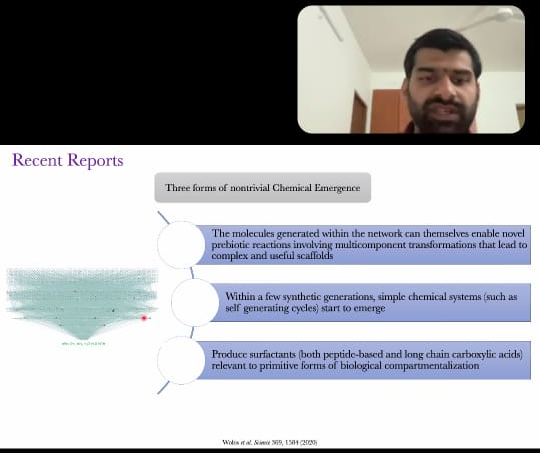Chemical Origin of Life: A Perspective into recent Progress
Dr. Sai Phani Kumar Vangala, IISER Bhopal
Abstract
The origin of life is believed to have begun with the gradual evolution of complex molecules from simple precursors present in Earth’s early atmosphere and oceans. Before the emergence of the first unicellular organisms, the environment consisted of essential elements such as water, oxygen, nitrogen, ammonia, carbon dioxide, and phosphorus compounds. These simple molecules likely underwent chemical transformations leading to the formation of complex biopolymers, including RNA, DNA, proteins, and carbohydrates, which eventually contributed to the emergence of life. In this talk, we will focus on the formation of biopolymers, specifically the synthesis of RNA from its fundamental components—phosphoric acid (phosphate group), ribose sugar, and nucleic acids (nucleotides). Using computational approaches, we evaluate the thermodynamic feasibility of RNA formation and compare it with alternative structural possibilities. While various simulation studies have been conducted in the context of the origin of life, the combination of classical molecular dynamics (MD) and ab initio density functional theory (DFT) for analysing RNA formation remains largely unexplored. In addition, we will provide a perspective into the recent progress in the origin of life research with relevant literature reports.
Special Moments



